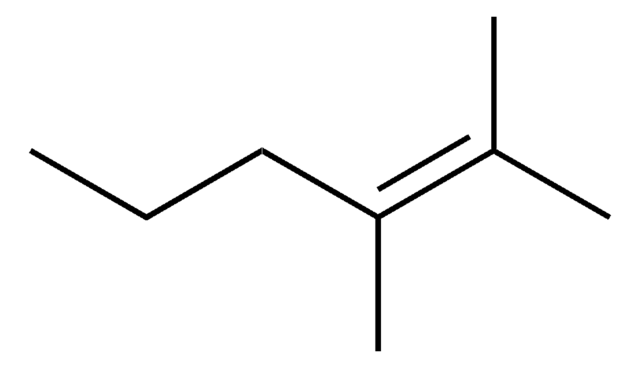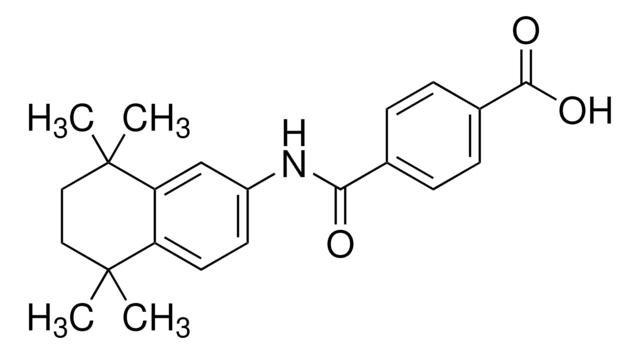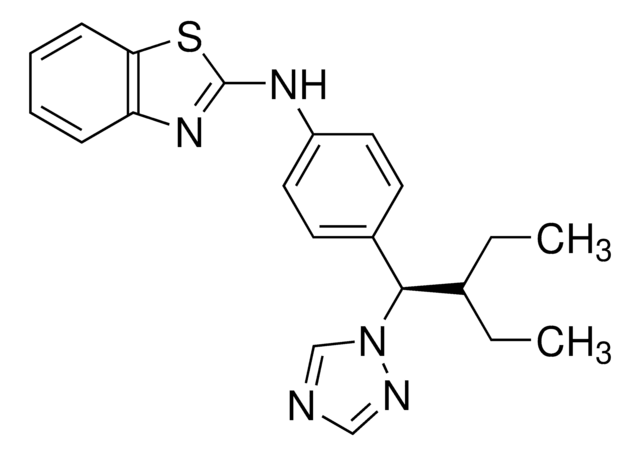SML1149
BMS-189453
≥98% (HPLC)
Synonym(s):
(E)-4-[2-(5,6-Dihydro-5,5-dimethyl-8-phenyl-2-naphthalenyl)ethenyl]-benzoic acid, BMS-453, BMS453
About This Item
Recommended Products
Quality Level
Assay
≥98% (HPLC)
form
powder
color
white to beige
solubility
DMSO: 10 mg/mL, clear
storage temp.
−20°C
SMILES string
OC(C(C=C1)=CC=C1/C=C/C(C=C2)=CC3=C2C(C)(C)CC=C3C4=CC=CC=C4)=O
InChI
1S/C27H24O2/c1-27(2)17-16-23(21-6-4-3-5-7-21)24-18-20(12-15-25(24)27)9-8-19-10-13-22(14-11-19)26(28)29/h3-16,18H,17H2,1-2H3,(H,28,29)/b9-8+
InChI key
VUODRPPTYLBGFM-CMDGGOBGSA-N
Biochem/physiol Actions
Features and Benefits
Storage Class Code
11 - Combustible Solids
WGK
WGK 3
Flash Point(F)
Not applicable
Flash Point(C)
Not applicable
Choose from one of the most recent versions:
Certificates of Analysis (COA)
Don't see the Right Version?
If you require a particular version, you can look up a specific certificate by the Lot or Batch number.
Already Own This Product?
Find documentation for the products that you have recently purchased in the Document Library.
Customers Also Viewed
Articles
We offer a variety of small molecule research tools, such as transcription factor modulators, inhibitors of chromatin modifying enzymes, and agonists/antagonists for target identification and validation in gene regulation research; a selection of these research tools is shown below.
We offer a variety of small molecule research tools, such as transcription factor modulators, inhibitors of chromatin modifying enzymes, and agonists/antagonists for target identification and validation in gene regulation research; a selection of these research tools is shown below.
We offer a variety of small molecule research tools, such as transcription factor modulators, inhibitors of chromatin modifying enzymes, and agonists/antagonists for target identification and validation in gene regulation research; a selection of these research tools is shown below.
We offer a variety of small molecule research tools, such as transcription factor modulators, inhibitors of chromatin modifying enzymes, and agonists/antagonists for target identification and validation in gene regulation research; a selection of these research tools is shown below.
Our team of scientists has experience in all areas of research including Life Science, Material Science, Chemical Synthesis, Chromatography, Analytical and many others.
Contact Technical Service











